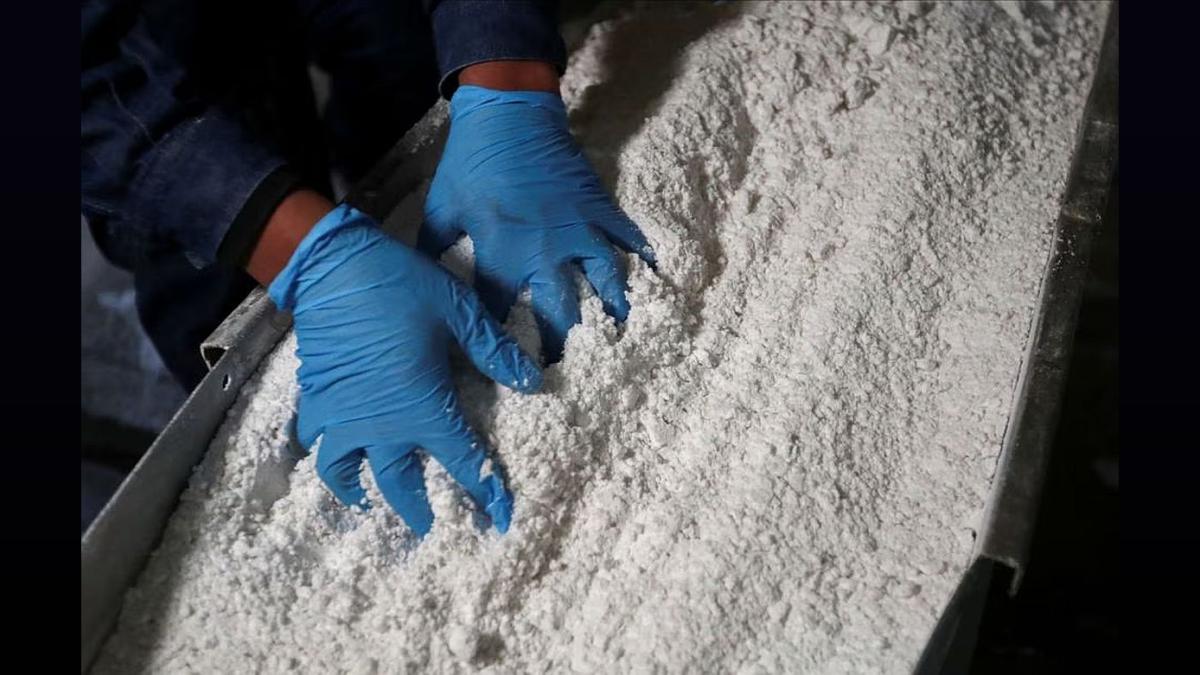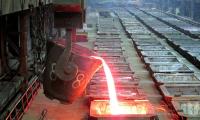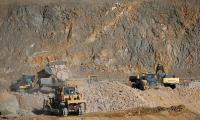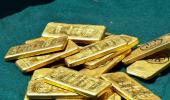Customs Duty Waiver on Critical Minerals: India to Become Cost-Competitive Hub
India has waived customs duty on critical minerals like lithium, copper, and nickel, making the country a competitive hub for lithium-based cathode materials and boosting domestic production of electric vehicles.

Photograph: Agustin Marcarian/Reuters
New Delhi, Jul 23 (PTI) The exemption of customs duty on critical minerals will result in India becoming a cost-competitive hub for lithium-based cathode material and allow domestic players to access these minerals at competitive rates, experts said on Tuesday.
Finance Minister Nirmala Sitharaman in her budget speech announced waiving customs duty on 25 critical minerals, including lithium, copper and nickel, and also reduced the import tariff on two minerals, including graphite.
According to Rakesh Surana, Partner, Deloitte India, the full exemption of customs duties on 25 critical minerals and the reduction of BCD on two of them is a positive step in the short term.
"This will allow Indian industries to access these minerals at competitive prices, thereby meeting our current mineral requirements," he said.
Himadri Speciality Chemical Ltd CMD & CEO Anurag Choudhary said the waiving off of customs duty on lithium is a milestone in the mission to locally manufacture lithium-ion battery for electric vehicles.
Lithium is a key raw material required for the development of cathode-active material, which constitutes 50-55 per cent of the cell cost.
"With the exemption of customs duty on this critical mineral, we foresee becoming a cost-competitive hub for lithium-based cathode material in India," he said.
Critical minerals such as antimony, beryllium, bismuth, cobalt, copper, gallium, germanium, hafnium, indium, lithium and nickel, which attracted BCD (Basic Customs Duty) in the range of 2.5 to 10 per cent was brought down to zero.
With regard to graphite and silicon quartz/silicon dioxide which attracted import tariff of 5 and 7.5 per cent, the customs duty has been brought down to 2.5 per cent.
Critical minerals such as copper, lithium, nickel, cobalt and rare earth elements are essential components in many of the rapidly growing clean energy technologies - from wind turbines and electricity networks to electric vehicles.
India is a net importer of critical minerals. In a bid to give a push to domestic mining, the mines ministry had last year passed the Mines and Minerals (Development & Regulation) Amendment Bill 2023, through which it can award exploration licences for deep-seated and critical minerals.
Finance Minister Nirmala Sitharaman in her budget speech announced waiving customs duty on 25 critical minerals, including lithium, copper and nickel, and also reduced the import tariff on two minerals, including graphite.
According to Rakesh Surana, Partner, Deloitte India, the full exemption of customs duties on 25 critical minerals and the reduction of BCD on two of them is a positive step in the short term.
"This will allow Indian industries to access these minerals at competitive prices, thereby meeting our current mineral requirements," he said.
Himadri Speciality Chemical Ltd CMD & CEO Anurag Choudhary said the waiving off of customs duty on lithium is a milestone in the mission to locally manufacture lithium-ion battery for electric vehicles.
Lithium is a key raw material required for the development of cathode-active material, which constitutes 50-55 per cent of the cell cost.
"With the exemption of customs duty on this critical mineral, we foresee becoming a cost-competitive hub for lithium-based cathode material in India," he said.
Critical minerals such as antimony, beryllium, bismuth, cobalt, copper, gallium, germanium, hafnium, indium, lithium and nickel, which attracted BCD (Basic Customs Duty) in the range of 2.5 to 10 per cent was brought down to zero.
With regard to graphite and silicon quartz/silicon dioxide which attracted import tariff of 5 and 7.5 per cent, the customs duty has been brought down to 2.5 per cent.
Critical minerals such as copper, lithium, nickel, cobalt and rare earth elements are essential components in many of the rapidly growing clean energy technologies - from wind turbines and electricity networks to electric vehicles.
India is a net importer of critical minerals. In a bid to give a push to domestic mining, the mines ministry had last year passed the Mines and Minerals (Development & Regulation) Amendment Bill 2023, through which it can award exploration licences for deep-seated and critical minerals.
You May Like To Read
TODAY'S MOST TRADED COMPANIES
- Company Name
- Price
- Volume
- Vodafone-Idea-L
- 11.65 (+ 3.56)
- 106772451
- Alstone-Textiles
- 0.28 ( -3.45)
- 44187760
- Mangalam-Industrial
- 0.88 ( -2.22)
- 39177573
- Sunshine-Capital
- 0.27 (+ 3.85)
- 35956340
- GMR-Airports
- 104.40 (+ 6.37)
- 30453005






